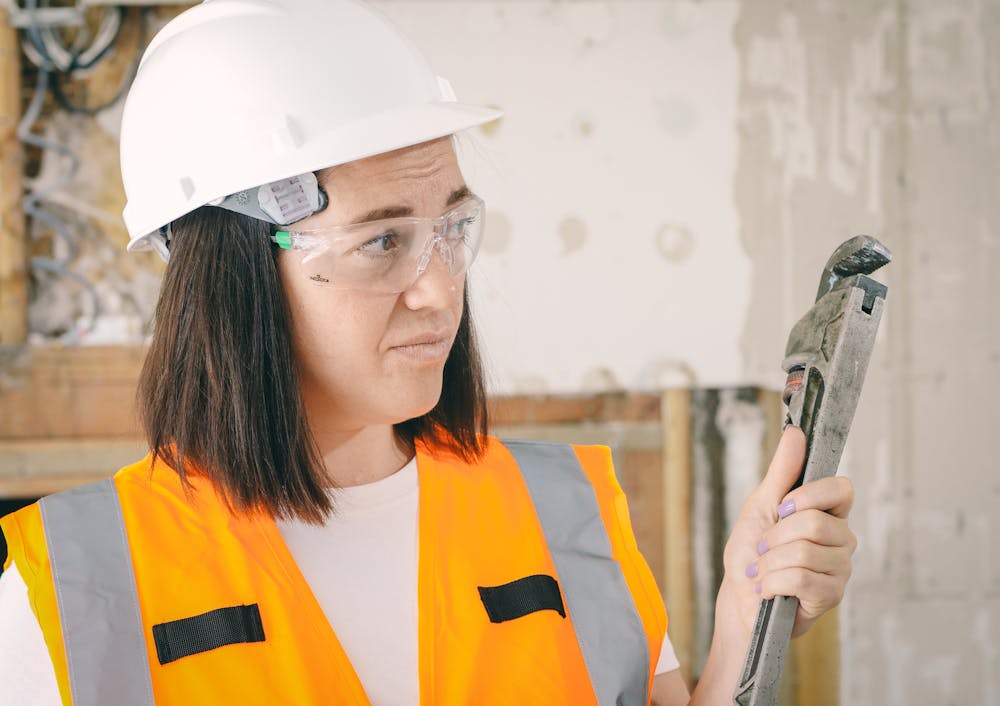Professional plumbing jobs require a license, and anyone attempting to start a career or business in plumbing is aware of this already. However, there is a good reason for this; plumbing certifications directly impact industry standards. Since licenses are required, plumbers regularly go above and beyond local codes due to the training and work it takes for certification. This guide explores why certifications are important and how they impact the industry as a whole.
Table of Contents
Why Do Plumbing Certifications Matter?
A certified plumber has the experience and skills to handle any plumbing job with ease no matter the difficulty. Inexperienced workers handling plumbing jobs improperly can result in many issues, some of which are even dangerous for both plumbers and clients. There are strict plumbing codes to ensure efficiency and safety, and plumbers must adhere to these. With certifications being the baseline standard in the plumbing industry, it only allows standards to improve from there.
Maintaining Accountability
When a plumber is certified, they are held more accountable than without one. No matter where or how a plumber is employed, there is always a standard that a licensed plumber must hold in order to keep their career. Typically, accountability is on a state level, and licenses or certifications may be revoked if legal matters arise. This keeps industry standards as high as they can be.
Important Safety Standards
Improper plumbing jobs can lead to pipe blockage, breakage, bursting, leaking, or even flooding. These problems may seem insignificant on their own, but they can lead to severe water damage or general home damage, mold health issues, electrocution, electrical fires, injury, or even death. Plumbing codes and certification standards avoid improper plumbing jobs and keep buildings and people safer.
Protecting Plumbers and Plumbing Companies
When plumbers are certified, they know they have the minimum experience, skill, and qualifications to undertake the work. Plumbing companies can be assured that those they hire or partner with also have the minimum experience and skill to do a job safely and accurately. When plumbers are familiar with industry standards and local codes, they can obtain permits and complete projects with better peace of mind.
Protecting Plumbing Clients
Unqualified plumbers have a likelier chance of doing subpar work, leading to home damage or safety issues. This puts clients at risk financially and can impact their health and happiness. When clients hire licensed contractors, they can be at ease that they know what they’re doing and have legal knowledge of codes, permits, and more. Similar to a doctor with a medical license, they know that there is a standard of quality for individuals in the industry to measure up to.
Environmental Concerns
Plumbing issues can cause leaks, floods, or even water contamination. This can waste viable water and hurt local populations and wildlife, causing a significant impact on the environment. Conservation of water is important, and when plumbers are qualified, it reduces the chance of plumbing leaks, floods, or improper contamination. Holding plumbers accountable through certification keeps environmental hazards low.
Ensuring Career Growth
Certification ensures growth in a plumber’s career. A licensed plumber can obtain entry-level jobs, management jobs, training jobs, and even partnerships or startups of their own. When a plumber isn’t qualified for the job and hasn’t yet received certification, they are only able to obtain training roles or apprenticeships. Obtaining licenses and certifications is a key to career success.
Ensuring the Future of the Plumbing Industry
A licensed plumber can train new and upcoming workers. With extensive qualifications and schooling under your belt, you can guarantee that new plumbers will have the skills and training to keep the plumbing industry standards as high as they can be. Training new talent is an important role as it not only helps with their career success but also ensures that the future of the plumbing industry is in good hands.
How Do You Obtain a Plumbing License?
Certification isn’t a quick task. It typically requires certified hours of plumbing training and passing an exam. What it takes to earn your license varies slightly by state. It is best to check the local qualifications in your area. What is true for all areas is the importance of proper preparation. When states like North Carolina have two different license classes to qualify for, there is a lot of prep work required. It’s smart to take exam prep courses to make obtaining a NC plumbing license even easier.
While licensing and certification for important contracting jobs such as plumbing may seem like a lot of work and time, it’s incredibly important for your career, the future of the plumbing industry, and the safety of everyone involved. Licenses ensure proper training and experience, and with technical skills, there’s no such thing as too much training.

